It’s part family reunion, part traveling museum, and quite literally a wild ride. Going to the Bill Pickett Invitational Rodeo (BPIR) entertains spectators with flair that infuses Black culture into familiar rodeo events and highlights Black history with a focus on family.
Front and center are the Black cowgirls who run the show — they are making serious waves in the rodeo world and are ready for the spotlight.
Helmed by Valeria Howard Cunningham (whose late husband, Lu Vason, founded BPIR in 1984) and run by production managers Carolyn Carter and Denise Tyus, the rodeo features myriad female competitors, including high-schooler Kortnee Solomon — all elite athletes blazing a trail for more Black women to enter the sport.
“After my husband, Lu Vason, passed, I wasn’t sure if I could continue on,” says BPIR CEO Valeria Howard Cunningham. “But there is still a need to showcase our skills, tell our own stories and educate people on our contributions to the American West.”
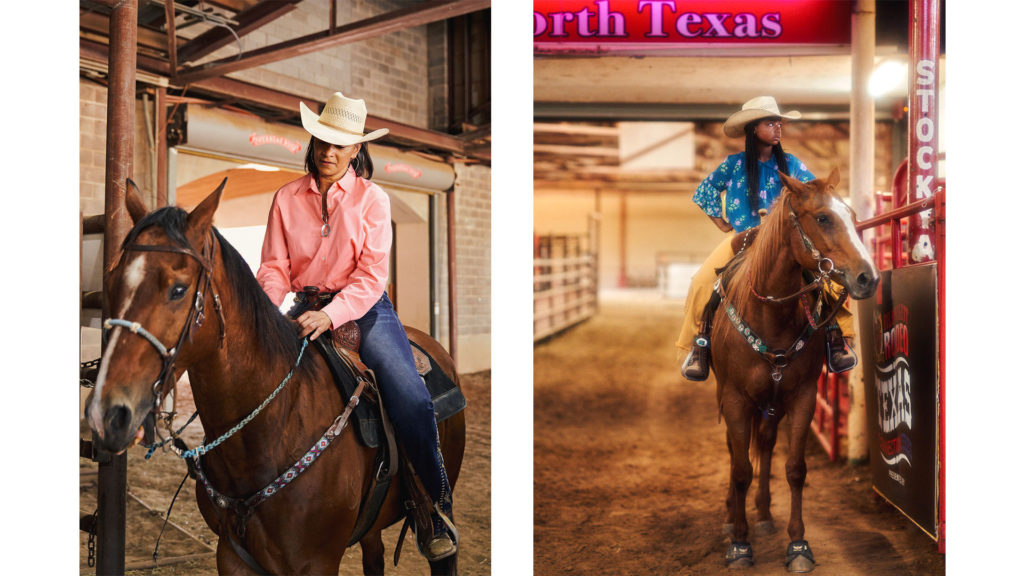
The inspiration for BPIR and the need to showcase the impact Black cowboys and cowgirls have had on rodeo tradition came after founder Lu Vason attended Cheyenne Frontier Days in Wyoming.
Not long after, on a visit to the Black American West Museum & Heritage Center, Vason learned of Bill Pickett, a Black cowboy and the originator of steer wrestling. Soon, the first touring Black rodeo show was born.
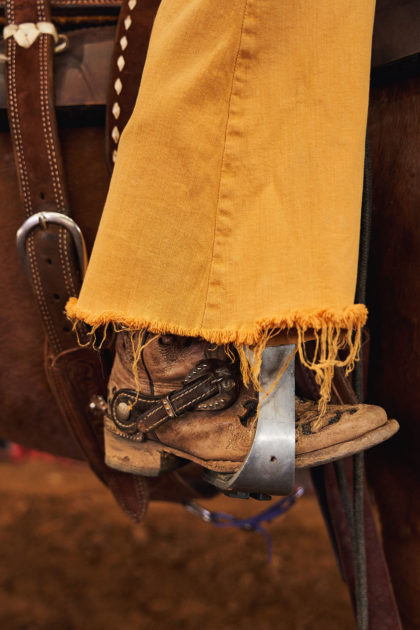
As the BPIR approaches four decades of operation, Howard Cunningham credits strong family bonds for the rodeo’s resilience, as well as its focus on creating a wholesome event that has inspiration and healthy competition at its core.
“Even down to the music, we make sure that everything is family-friendly,” says Howard Cunningham.
In fact, family legacy in rodeo is a through line in many of the stories of BPIR’s Black cowgirls.
“I’ve been around rodeo most of my life. After going and watching family members compete, I decided to join them,” says Denise Tyus, a second-generation cowgirl originally from Damascus, Arkansas, who joined BPIR in 1991.
Tyus gained acclaim as a Ladies’ Steer Undecorating Champion and says the show exposed her to the long history of African Americans’ contributions to Western culture not usually taught in history books or seen in the media.
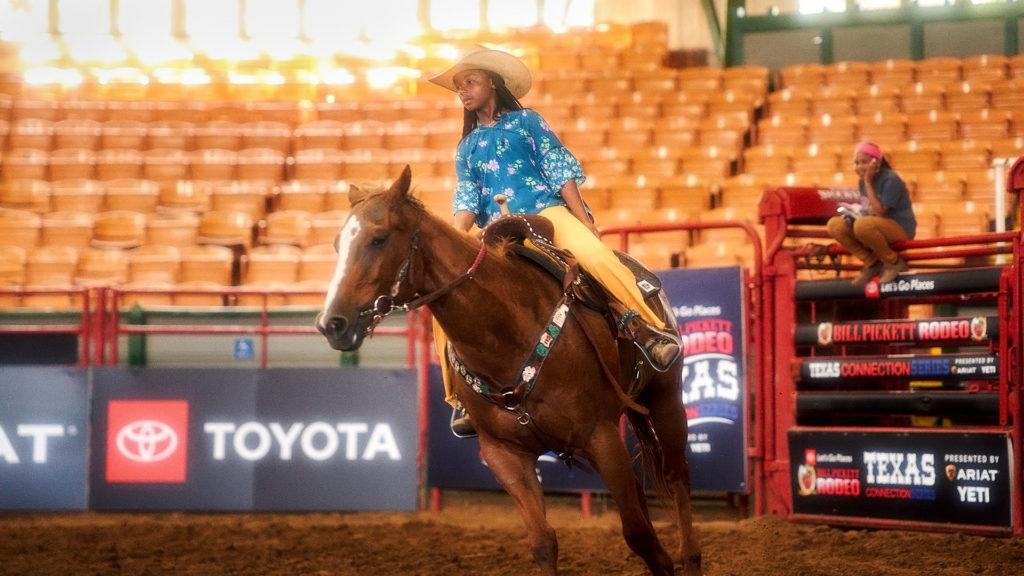
“Cowgirls have been around and a significant force since the history days of pioneers like Mary Fields [better known as Stagecoach Mary] and Biddy Mason,” shares Tyus, who says experiencing the adrenaline rush and fast pace of competitions motivated her to carry the tradition forward.
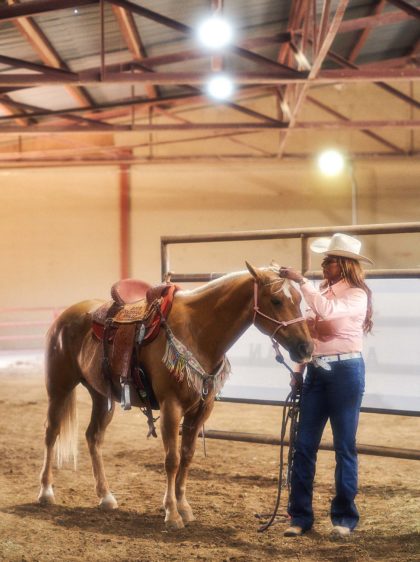
Her story is similar to cowgirl Carolyn Carter’s, who was first exposed to Black rodeo in Boley, Oklahoma, a historically Black town that hosts an annual Memorial Day rodeo, which is believed to be the country’s oldest African American community-based rodeo.
“I have 10 siblings, and we’d visit the rodeo as a family,” says Carter, who eventually grew attached to rodeo culture after winning Rookie Cowgirl of the Year at the inaugural Bill Pickett Invitational Rodeo in 1984 held in Denver, Colorado.
“My daughters grew up on the rodeo trail,” says Carter, who was a BPIR finalist consecutively from 1984 to 2019. She specializes in steer undecorating and barrel racing and credits the rodeo for allowing her family to travel to spots around the U.S., like Rowell Ranch Rodeo Park, a stop of the BPIR tour in the Oakland, California, area.
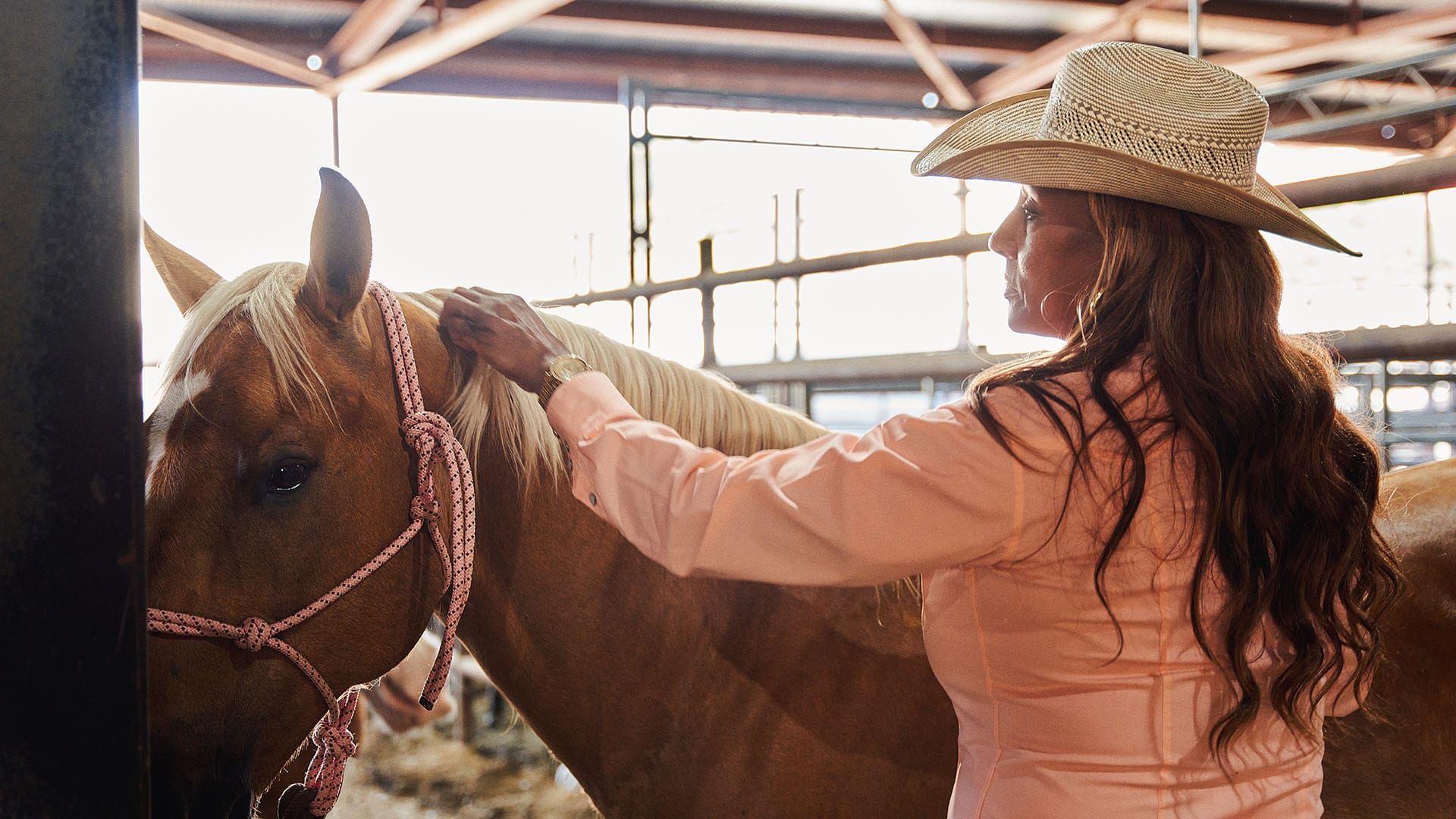
Today, the next generation is beginning to leave its mark, most notably high-schooler Kortnee Solomon, a young phenom and fourth-generation competitor in BPIR who specializes in junior barrel racing and junior breakaway, as well as goat tying and pole bending.
“These young third- and fourth-generation kids coming up feel this is their home, a place they can grow,” explains Howard Cunningham, who says she remains proud to provide a safe, welcoming space for new and existing Black cowgirls to become proficient in their sport.
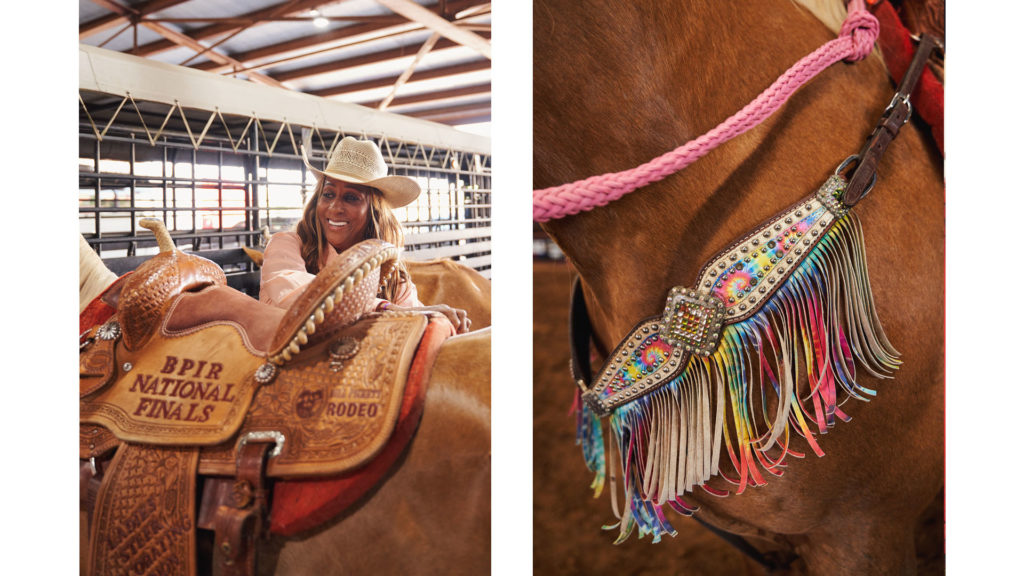
The Bill Pickett Rodeo Tour generally travels through Oakland and Los Angeles in California, as well as Atlanta, Georgia, and the the D.C. metro area each summer before ending in Fort Worth, Texas, in September. For more information about the BPIR, visit billpicketrodeo.com.
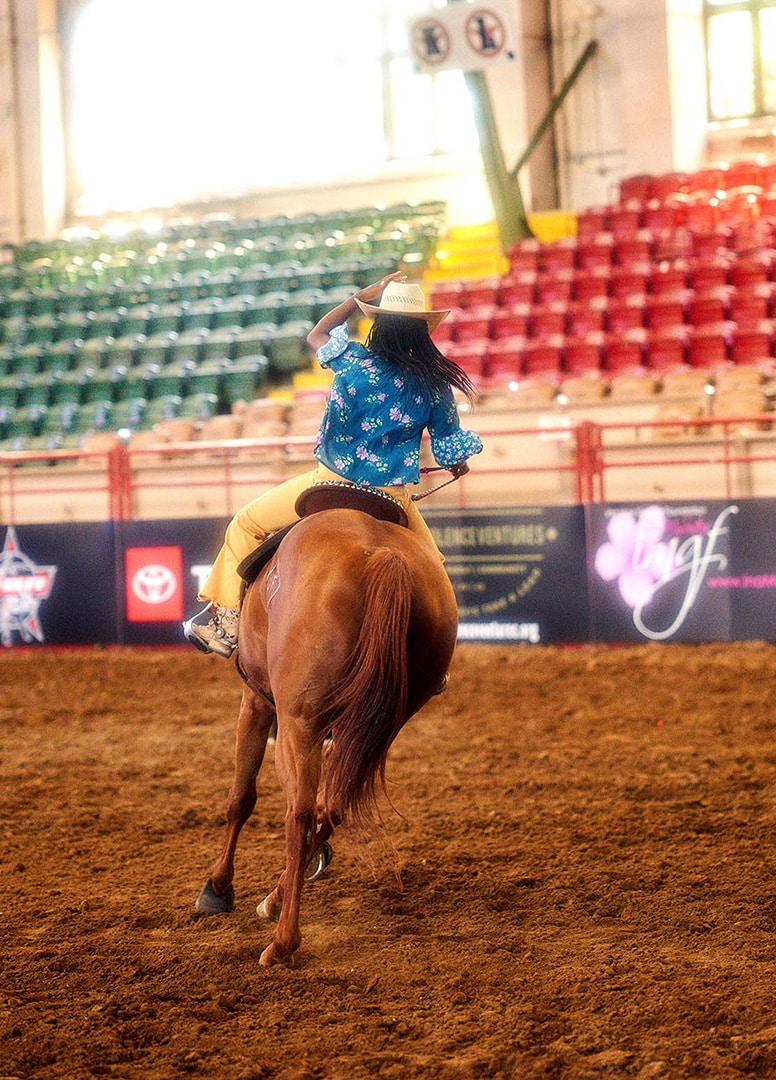
Anthony Ferrell is a Dallas, Texas based photographer and creative whose work centers on the beauty of the Black experience. See his portfolio at https://www.anthonyferrell.net/.




